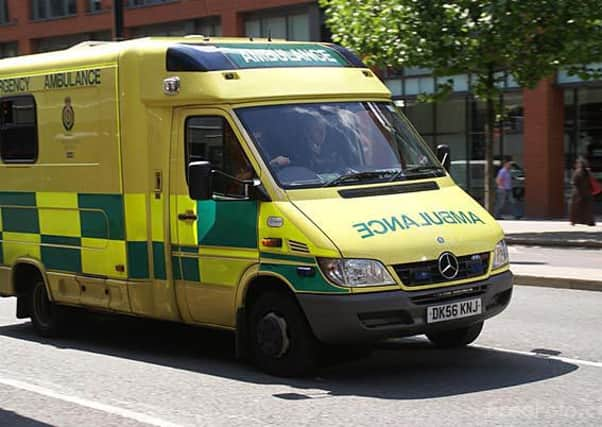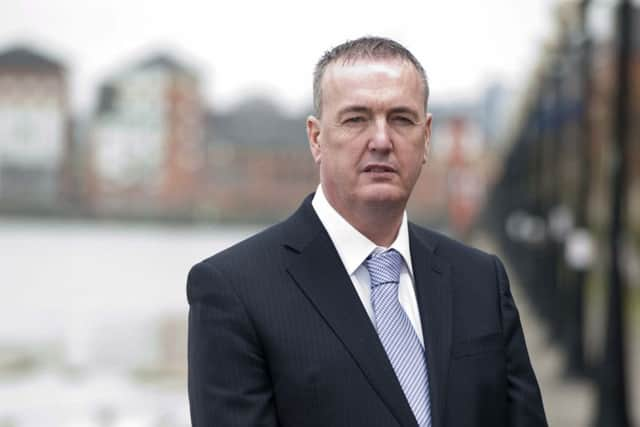Police used as makeshift ambulances


Lancashire Police has lost more than 700 officers since 2010 – with a further 800 jobs under threat – after having its budget slashed by central Government.
Yet new figures show officers used police vehicles to take people to hospital on 382 occasions between November and April – more than twice a day.
Advertisement
Hide AdAdvertisement
Hide AdIt comes after The Gazette revealed unprecedented demand led to the North West Ambulance Service (NWAS) missing waiting times targets in almost half of the most serious cases in parts of the Fylde coast.


Ambulance chiefs say police have not raised the issue with them and claim the figures include minor cases where they were never called.
But the figures have prompted claims police are “propping up” other emergency services.
Clive Grunshaw, Lancashire’s Police and Crime Commissioner, said: “This is another indication of how public services are being stretched and the Government needs to address the situation we are facing.
Advertisement
Hide AdAdvertisement
Hide Ad“One of my priorities is maintaining frontline policing and the extra demand this situation places on the police force inevitably means they are being taken away from the work they could otherwise be doing.”
Figures released under the Freedom of Information Act show Lancashire Police only started recording the number of times its vehicles doubled as ambulances in November 2014.
Since then, its 382 trips to A&E are more than many forces notched up over three years.
Only the Met and Northumbria Police took more patients to hospital – although their figures cover the full year.
Advertisement
Hide AdAdvertisement
Hide AdJust last month, the chairman of the national Police Federation Steve White said it “cannot be right” that police are frequently called on to take people to hospital.
He told the Federation’s national conference: “Already, we’ve got to a point where the police service is often propping up other public services that have been cut, too.
“But we are the service of last resort, which means we can’t say no.”
Demand
As reported in yesterday’s Gazette, cuts to Lancashire Police’s budget look set to reach £100m by 2021 and officials warn services are bound to be hit hard.
Advertisement
Hide AdAdvertisement
Hide AdBut as demand for ambulances soared last year, NWAS admitted it was struggling to meet performance targets – particularly in rural parts of the county.
The service said its figures since April have improved dramatically.
But concerns remain over the number of times police are taking patients to hospital themselves amid fears paramedics will not arrive in time.
In March, Blackpool Police officers took a 16-year-old girl to hospital after she was slashed in the face during a vicious knife attack in Layton.
Advertisement
Hide AdAdvertisement
Hide AdHer injuries were so severe that officers decided they could not afford to wait for an ambulance to arrive.
A spokesman for NWAS said: “While we are aware that some patients have, on occasion, been conveyed to hospital by police colleagues due to our increased demand, we don’t believe that these figures are solely due to an ambulance delay.
“NWAS has not received any formal communication from Lancashire Police regarding this as a general issue and believes the figures could include occasions where an ambulance has not been called for and a police officer has offered to take a member of the public to hospital to treat a minor injury.”
NWAS said it is working with police to improve the service to the public, including giving guidance on when to call for an ambulance.
Advertisement
Hide AdAdvertisement
Hide AdThe spokesman added: “During periods of high demand, for example, we have placed clinicians in police control centres to provide advice to their frontline staff.”
A Lancashire Police spokesman said: “There are occasions when officers have had to transport people to hospital for a variety of reasons.
“As a public service our main priority is keeping people safe, so when we need to do this we will.
“We are working very closely with our colleagues at the ambulance service to try to prevent this from happening.”